The Editorial Board of the journal is responsible for maintaining the quality and integrity of the journal's content. The board members are experts in their respective fields and play a crucial role in the peer review process, ensuring that all articles published meet the highest academic standards.
The Editorial Board is committed to upholding the principles of academic excellence, transparency, and ethical publishing practices. They work closely with authors, reviewers, and the editorial team to facilitate a smooth publication process.
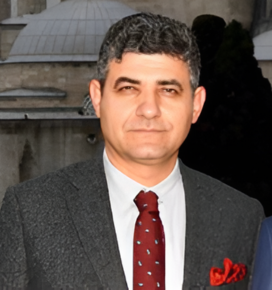
Infectious Diseases
Infectious Diseases, Istanbul University, Istanbul
Professor Dr. Oral Oncul, MD, PhD is a leading Turkish physician and researcher specializing in infectious diseases, clinical microbiology, microbiota, oncology, and neuroscience. He serves as Professor at Istanbul University, Faculty of Medicine, onco immune genetic Research Group. A graduate of Gulhane Military Medical, he completed his residency in Infectious Diseases & Clinical Microbiology and later joined Istanbul University. Professor Oncul has held prominent academic and administrative positions, including Dean and Vice Rector of Istanbul University, and is a member of TUBA, TUSEB, and the Turkish Higher Education Council. His research focuses on nosocomial infections, antimicrobial resistance, microbiota–brain interactions, and cancer immunology, with more than 120 international publications and several was Internal Mayo Clinic, he integrates microbiology, immunology, and neuroscience to advance nanomedicine and genetic therapies for infectious and oncological diseases, bridging disciplines across medicine and biotechnology.
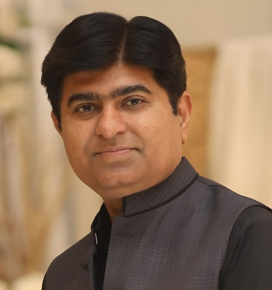
Computing and Engineering
Computing and Engineering, University of Derby, Derby
Dr. Mian Usman Sattar is an academic and researcher in Computing, currently serving as Programme Leader for the B.Sc. (Information Technology) at the University of Derby, United Kingdom. He holds a Ph.D. in Informatics from the Malaysian University of Science and Technology and an M.S. in IT Management from the University of Sunderland, UK. Dr. Sattar’s research integrates artificial intelligence, data analytics, enterprise systems, and information security, with a strong interdisciplinary focus on computational neuroscience and clinical decision support systems. His work has been published in prestigious international journals including Frontiers in Computational Neuroscience, Information, Sustainability, and the Journal of Intelligent Systems. He has led and collaborated on multiple international research grants, contributed to the establishment of the Centre for Artificial Intelligence Research, and actively serves as a reviewer for leading journals in neuroscience, medicine, and intelligent systems. A certified Microsoft and SAP professional, Dr. Sattar continues to advance innovation at the intersection of AI, data science, and clinical applications, fostering the use of intelligent technologies to enhance healthcare and neurological research outcomes.
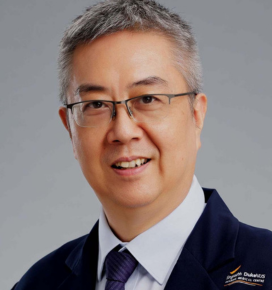
Neuroscience
Neuroscience, Duke-NUS Medical School, Singapore
Dr. Zhou Zhi Dong is a Clinician Scientist and Principal Investigator at the National Neuroscience Institute (NNI), Singapore, and an Assistant Professor in the Neuroscience and Behavioural Disorders (NBD) Programme at Duke-NUS Medical School. He graduated with a Doctor of Medicine (M.D.) from Nantong Medical University in 1991 and completed five years of postgraduate clinical training in Internal Medicine at the First People’s Hospital of Nantong City, Jiangsu Province, China. He later earned his Ph.D. in Biochemistry & Molecular Biology / Biophysics from the Shanghai Branch of the Chinese Academy of Sciences in 2003. Following his doctoral studies, Dr. Zhou undertook postdoctoral training in Parkinson’s disease (PD) research at the National University of Singapore (NUS). Dr. Zhou joined the National Neuroscience Institute where he became a member of the National PD Translational Bench-to-Bedside Team, focusing on translational neuroscience and neurodegenerative disorders. His current research explores novel therapeutic targets, neuroprotective agents, and biomarkers in Parkinson’s and Alzheimer’s diseases, aiming to improve diagnosis, prognosis, and therapeutic strategies.

Cellular and Translational Neuroscience
Cellular and Translational Neuroscience, Maastricht University, Maastricht
Dr. Hendrik (Harry) Wilhelm Maria Steinbusch is a distinguished Dutch neuroscientist and Professor Emeritus of Cellular and Translational Neuroscience at Maastricht University, The Netherlands. Born in 1950 in Kerkrade, he earned his Ph.D. cum laude at the Catholic University of Nijmegen in 1982 with a groundbreaking dissertation on serotonergic neurons in the rat brain. Over a career spanning more than four decades, Dr. Steinbusch has made pioneering contributions to the understanding of brain development, neuroplasticity, aging, depression, and neurodegeneration. His work has particularly highlighted the link between early-life stress, depression, and Alzheimer’s disease. He has supervised more than 107 Ph.D. students, authored over 615 scientific publications, and achieved a Hirsch index (h-index) of 110, with over 45,000 citations. His leadership extended far beyond research, having established and directed multiple international neuroscience programs and networks, including EURON, NENS, and MHeNS. In recognition of his outstanding contributions, he has received several Lifetime Achievement Awards (Italy, South Korea, International Society for Serotonin Research) and was knighted in the Order of the Dutch Lion (2018). He continues to be highly active in fostering global collaborations, mentoring young scientists, and advancing translational neuroscience research.

Former Senior Health Scientist, Traumatic Brain Injury Team
Department of Pediatrics
Juliet Haarbauer-Krupa, PhD, FACRM, is an accomplished researcher and clinician with 40 years of experience in traumatic brain injury (TBI) across clinical practice, research, and public health domains. She serves as Adjunct Faculty in the Department of Pediatrics at Emory University School of Medicine and previously worked as a Senior Health Scientist at the CDC’s Division of Injury Prevention, where she led and contributed to national TBI surveillance, prevention, and policy efforts.
Her work spans pediatric and adult TBI, rehabilitation program development, longitudinal research studies, and major contributions to CDC’s Report to Congress on the Management of TBI in Children. She has authored numerous peer-reviewed publications and book chapters, and has received prestigious recognitions including the 2025 Robert L. Moody Prize, the BIAA William Fields Caveness Award, and multiple honors for her research, advocacy, and leadership in brain injury rehabilitation.
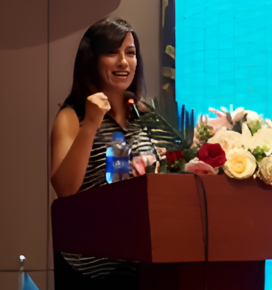
Neurophysiology, Universidad Autonoma Metropolitana, Mexico
Neurophysiology
Dr. Maria del Carmen Rubio Osornio is a distinguished Medical Research Scientist and Academic Leader renowned for her contributions to the field of neurophysiology, particularly in the study of epilepsy and neurological disorders. As a recognized National Researcher Level II (SNI II) within Mexico’s National System of Researchers, she has built a career marked by scientific excellence, leadership, and a strong commitment to advancing biomedical knowledge. A native of Mexico, Dr. Rubio Osornio earned her Ph.D. in Biological and Health Sciences from the Universidad Nacional Autónoma Metropolitana (UAM-Xochimilco) in 2011, following a Master’s Degree in Psychobiology and a Bachelor’s Degree in Psychology, both from the Universidad Nacional Autónoma de México (UNAM). Her multidisciplinary academic background has supported a comprehensive approach to understanding the molecular and physiological mechanisms underlying neurological dysfunction. Dr. Rubio Osornio currently serves as Academic Leader in the Department of Neurophysiology at the National Institute of Neurology and Neurosurgery (INNN MVS), where she also holds the position of Medical Research Scientist “D” within Mexico’s Secretary of Health. Her research focuses on neurophysiological characterization and the molecular pathways involved in epilepsy, including the Wnt/β-catenin signaling pathway and electrophysiological alterations in neuronal populations.

Neurology, University of Alcala, Madrid
Neurology
Dr. Lucienne Costa-Frossard França, MD, is a Consultant Neurologist at the National Multiple Sclerosis (MS) Reference Center of the Hospital Universitario Ramón y Cajal in Madrid, Spain, and a researcher at the Instituto Ramón y Cajal de Investigación Sanitaria (IRYCIS). She holds a Medical Degree (Licenciatura en Medicina y Cirugía) from the Universidad de Barbacena (Brazil, 1995), where she graduated with distinction (Premio José Bonifacio de Andrade), and completed her Specialization in Neurology at the Hospital Universitario Ramón y Cajal (Spain, 2006). Dr. Costa-Frossard is an established clinician-scientist with a dual profile in clinical neurology and translational neuroimmunology research, focusing on Multiple Sclerosis (MS). She has extensive experience in clinical trial coordination, having served as principal investigator and national coordinator for numerous multicenter trials in Spain on advanced MS treatments, including anti-CD20 therapies (ocrelizumab, ofatumumab, rituximab), S1P modulators, BTK inhibitors, extended-interval natalizumab, and CAR-T cell therapy approaches.
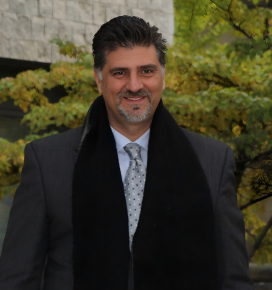
Department of Informatics, Ionian University, Corfu
Department of Informatics
Professor Panagiotis Vlamos is a Full Professor at the Ionian University, Greece, where he serves as Chairman of the University Research Center and Director of the Bioinformatics and Human Electrophysiology Laboratory (BiHELab). He is an internationally recognized researcher in bioinformatics, mathematical modeling, and computational neuroscience, with a particular focus on neurodegenerative diseases and personalized medicine. Professor Vlamos has authored more than 200 scientific papers in peer-reviewed journals and conference proceedings, as well as 16 educational books. His research aims to bridge the translational gap from data to models and from models to drug discovery and personalized therapy, developing quantitative deterministic approaches to biological and clinical problems using high-performance computing and advanced mathematical frameworks.

Department of Computer Science, California State University, Los Angeles
Department of Computer Science
Kanchon Kumar Bishnu is an AI Research Scientist in the Department of Computer Science at California State University, Los Angeles. His work focuses on advancing intelligent systems through machine learning, health informatics, cybersecurity analytics, and data-driven automation.
He has authored 15+ peer-reviewed publications in leading journals such as IEEE Access, IEEE Open Journal of the Computer Society, Elsevier, MDPI, Springer Nature, and Tech Science Press. His research contributions span AI-driven medical diagnosis for Parkinson’s, Alzheimer’s, diabetes, cardiovascular disease, and skin cancer, as well as cybersecurity and digital forensics, including cryptocurrency fraud detection and threat prediction.
He serves as a certified reviewer for high-impact journals including Elsevier’s Computers & Electrical Engineering, Biomedical Signal Processing and Control, PLOS ONE, and the Journal of Alzheimer’s Disease (IOS Press).
Kanchon is a UK patent holder in computer science innovation and an advocate for open-access and reproducible research, maintaining public GitHub repositories.

Pharmacology, Smt Kishoritai Bhoyar College of Pharmacy Kamptee, Nagpur, India
Pharmacology
Dr. Mayur Bhimrao Kale is a dedicated researcher and academician in the field of neuropharmacology and pharmaceutical sciences, with a strong focus on understanding the molecular and behavioral underpinnings of neurological and psychiatric disorders. His research expertise lies in neurobehavioral paradigms, mitochondrial dysfunction, neurodevelopmental disorders, and the therapeutic potential of endogenous amines and phytochemicals. He has contributed significantly to advancing knowledge on the role of agmatine, gut–brain axis interactions, and neuroinflammation in the pathophysiology of neurodegenerative and neurodevelopmental conditions. His recent works also extend to exploring biomarkers of aging, sound-based Vedic interventions, and the impact of environmental stressors such as electromagnetic fields on brain development and function. Dr. Kale has authored and co-authored several peer-reviewed articles in reputed international journals, along with book chapters highlighting translational aspects of neuroscience research. He is actively involved in mentoring young researchers and students, fostering innovation through participation in initiatives like the Smart India Hackathon and incubation-driven healthcare product development. In addition to his academic contributions, Dr. Kale is engaged in interdisciplinary collaborations that bridge pharmacology, behavioral neuroscience, and precision medicine. His long-term vision is to contribute toward developing novel therapeutic strategies and non-invasive interventions that can alleviate the burden of neurological disorders and improve quality of life.